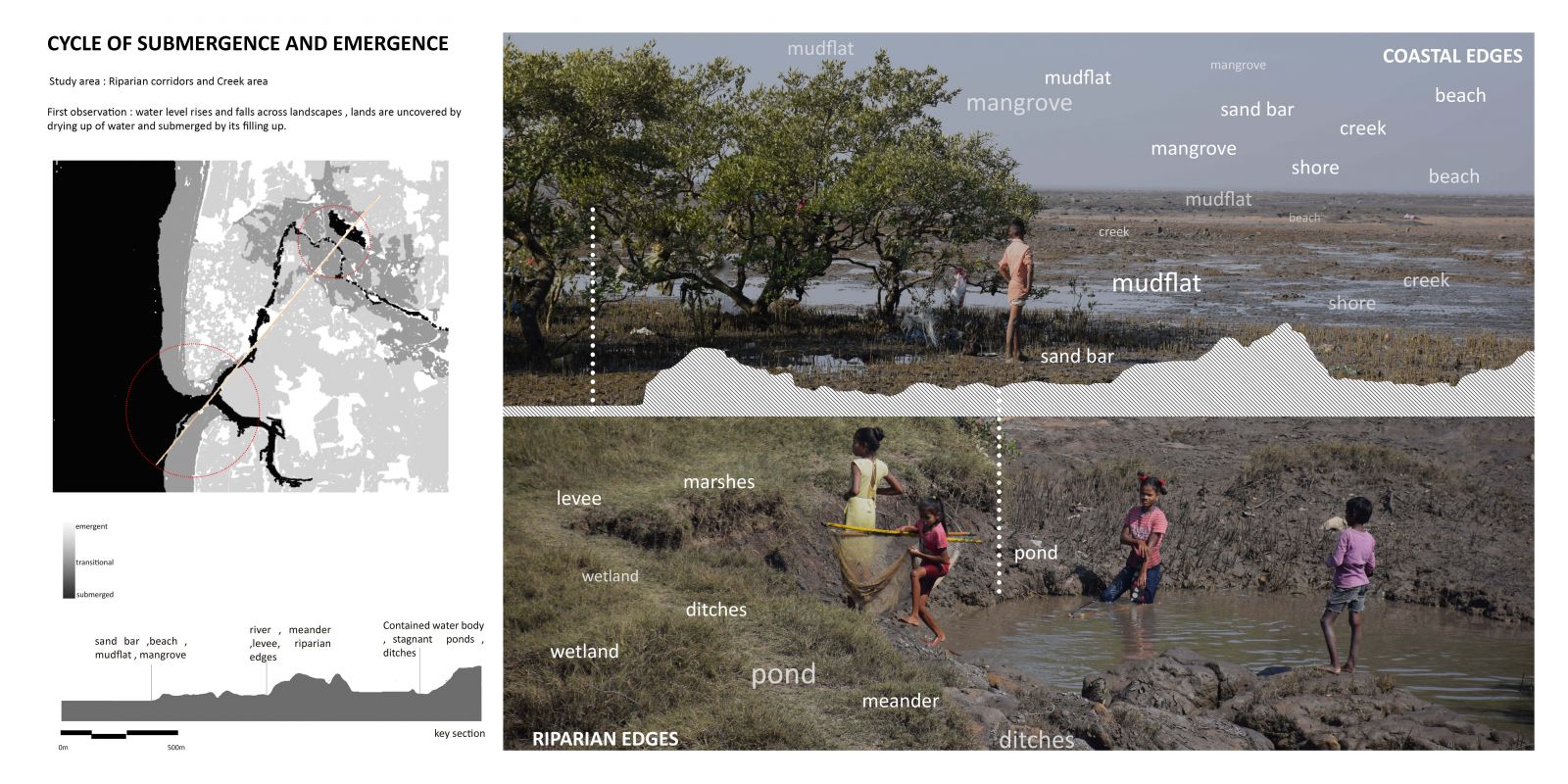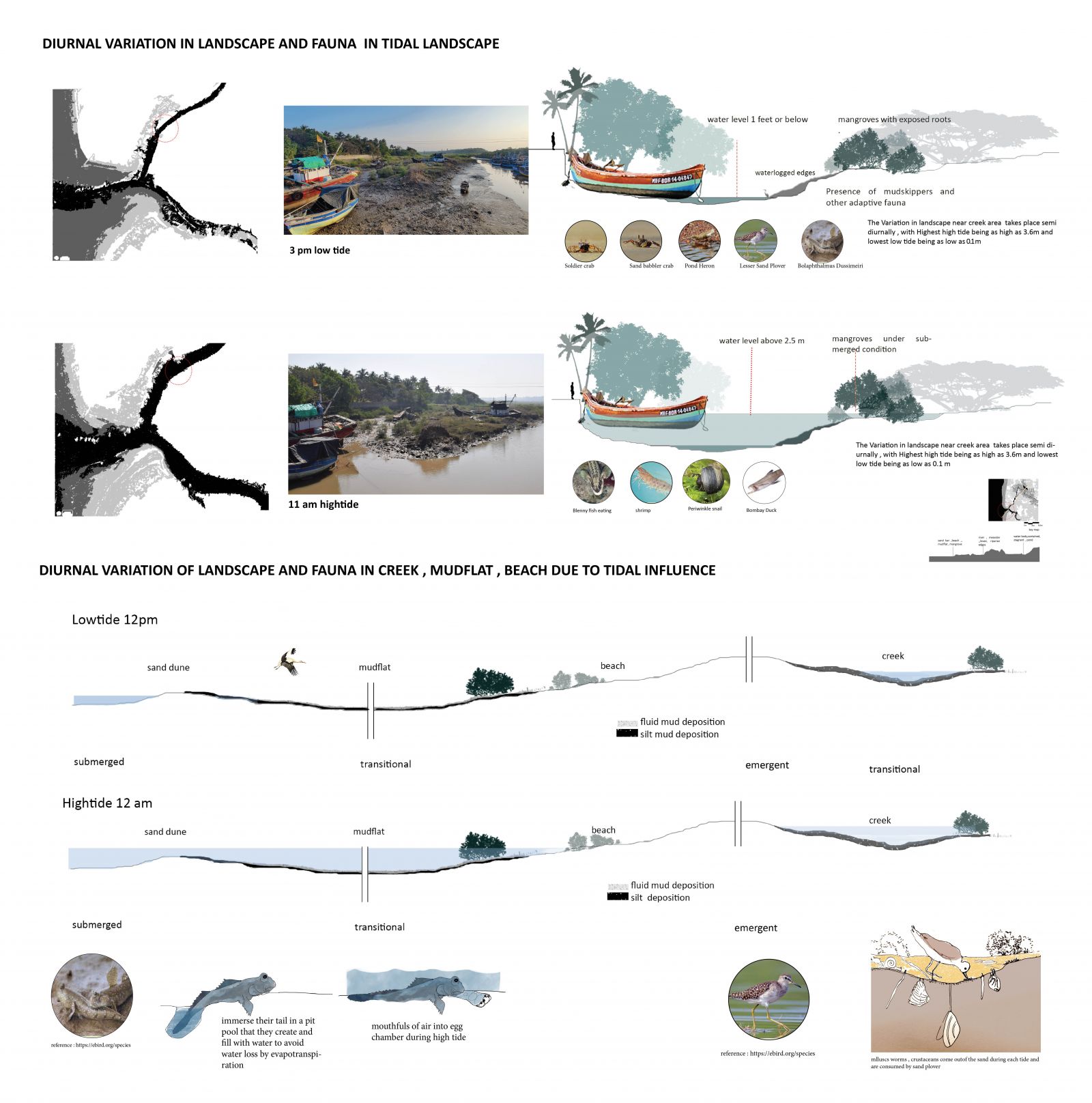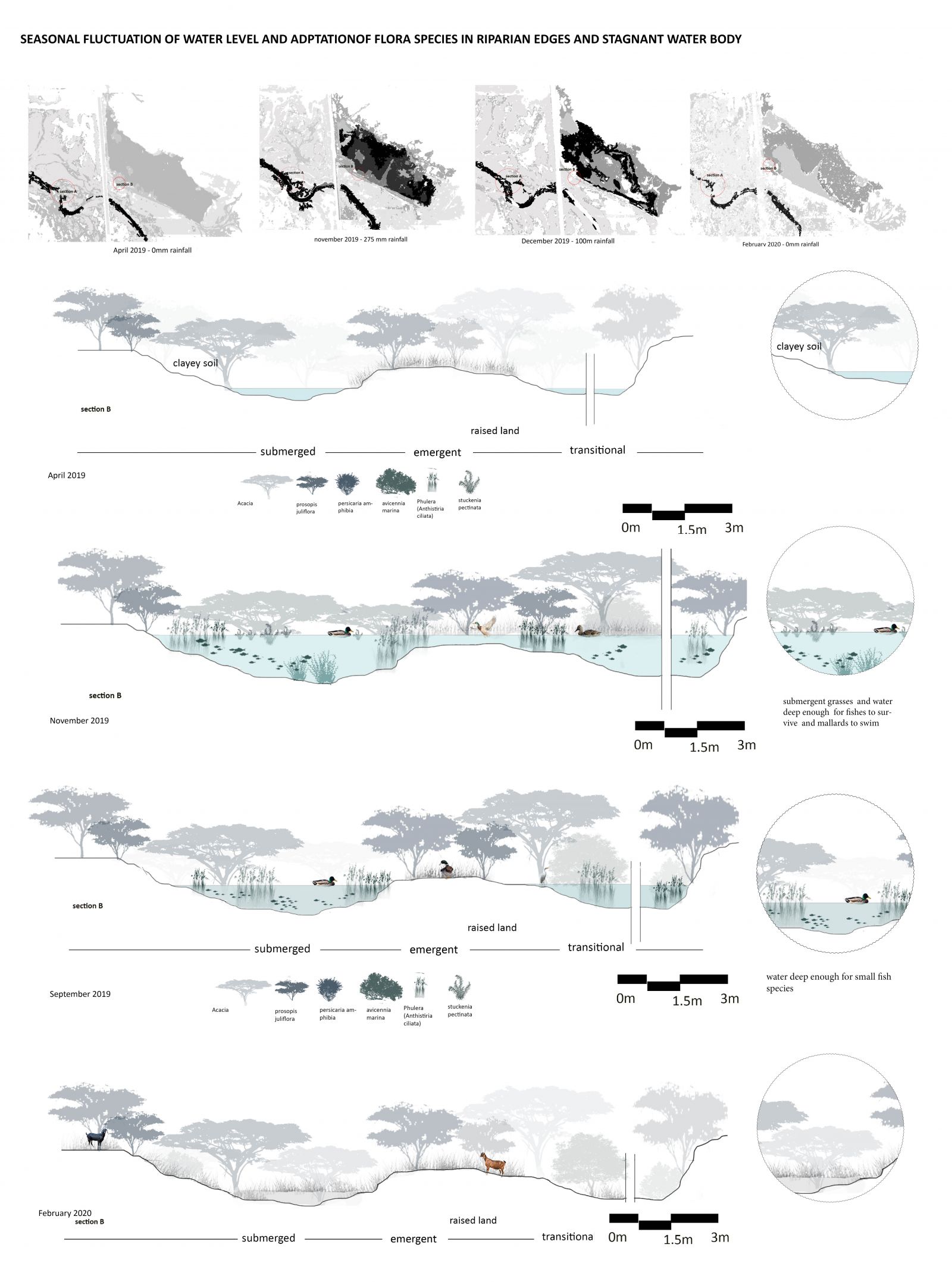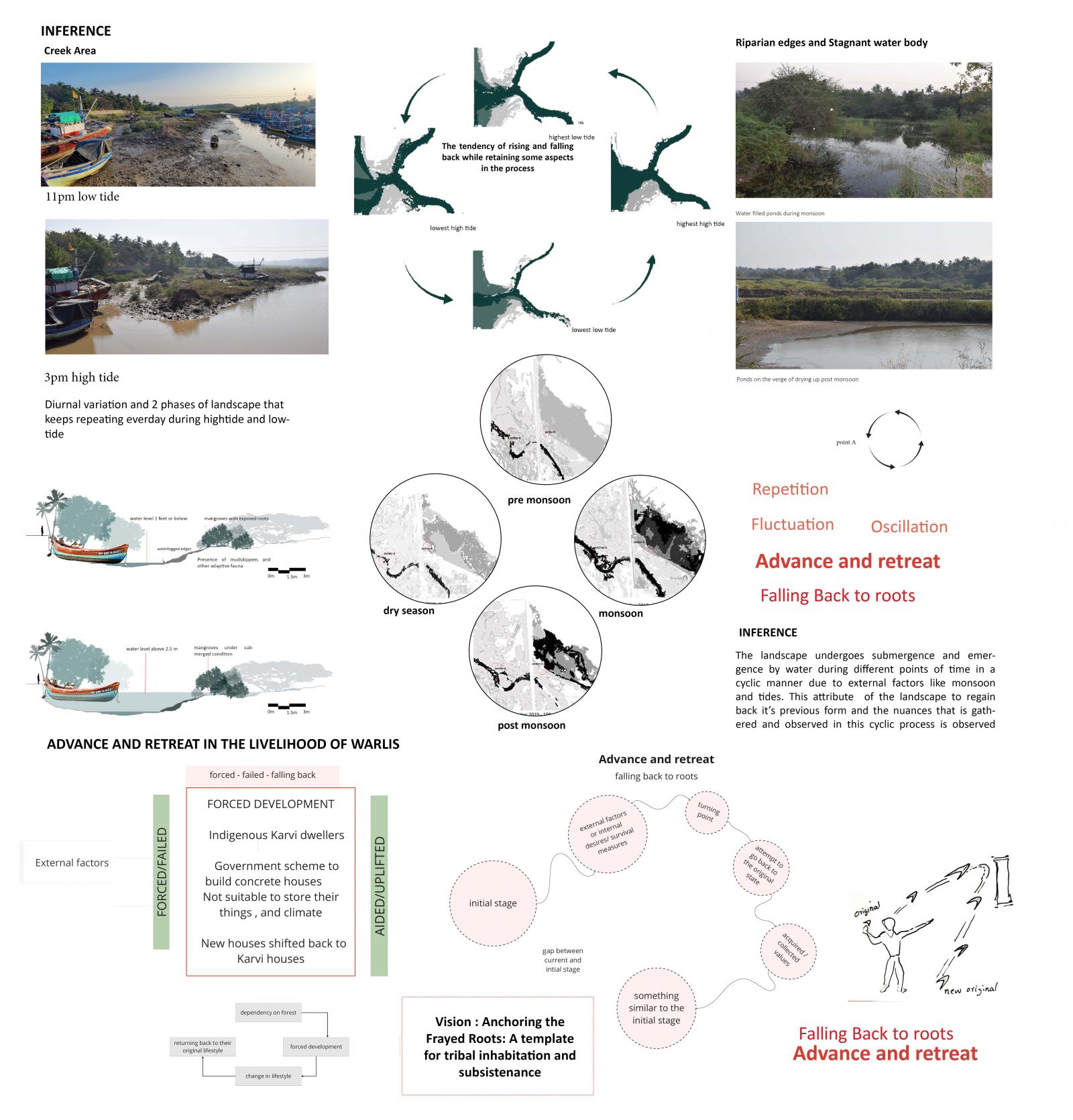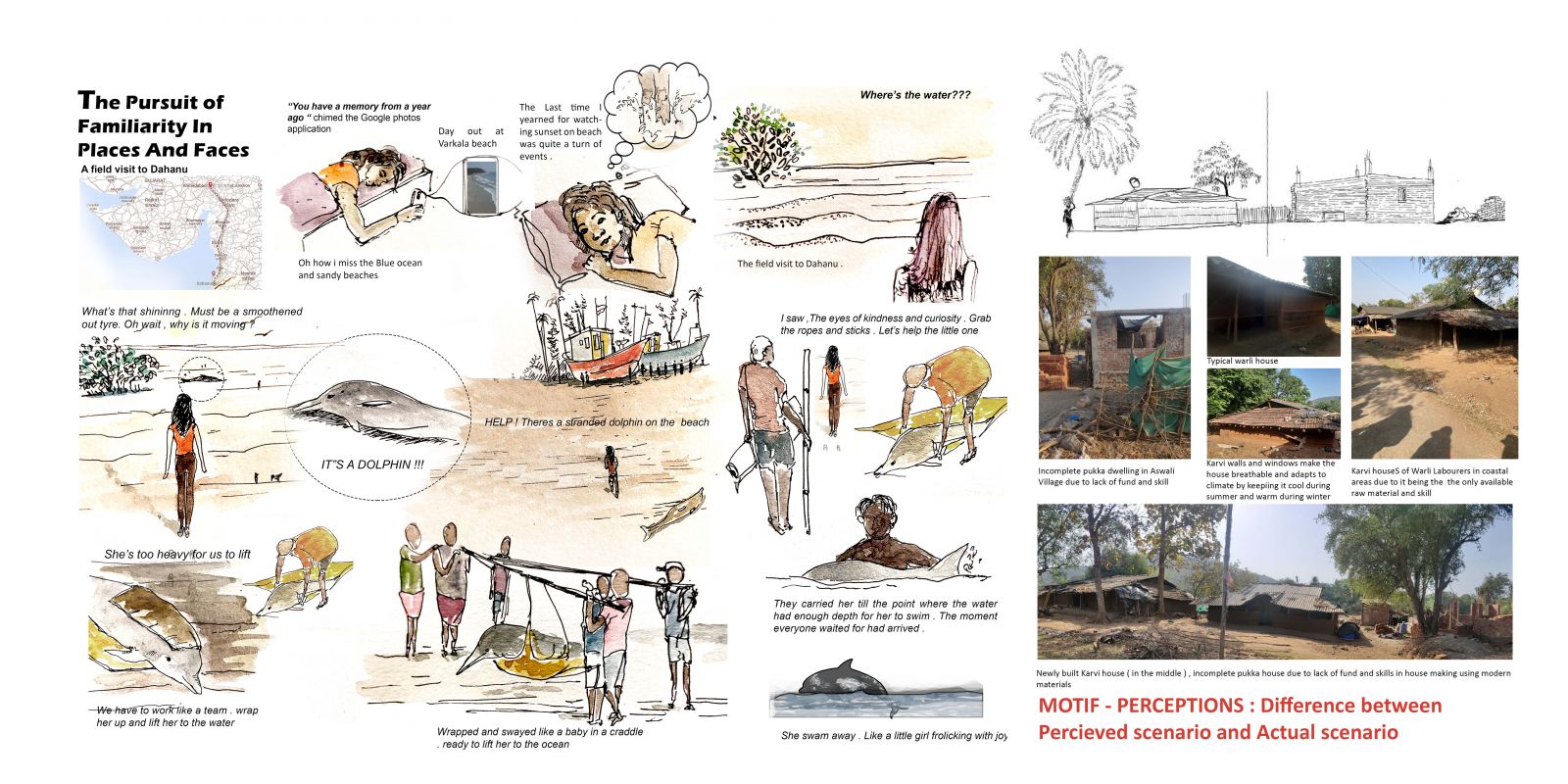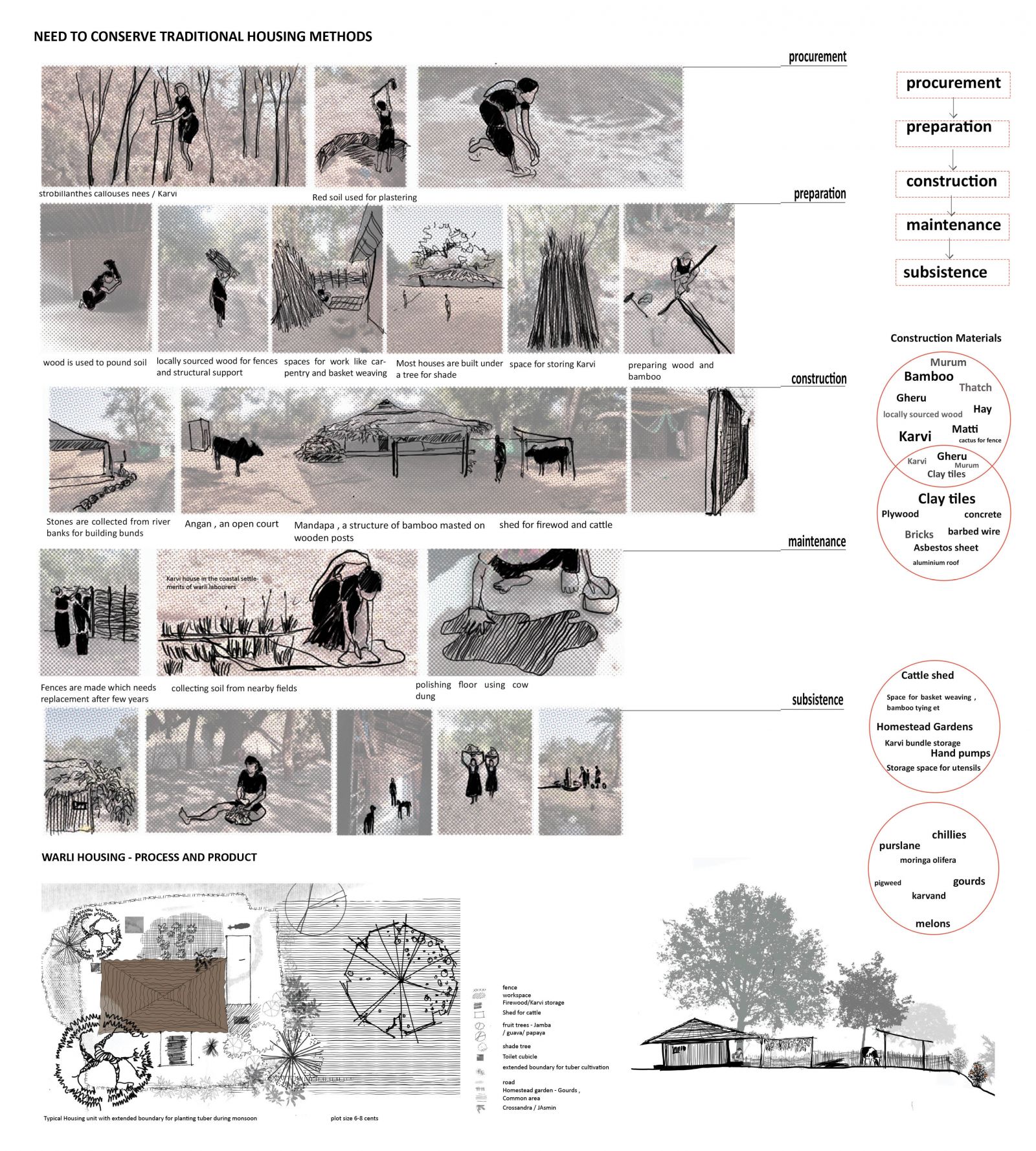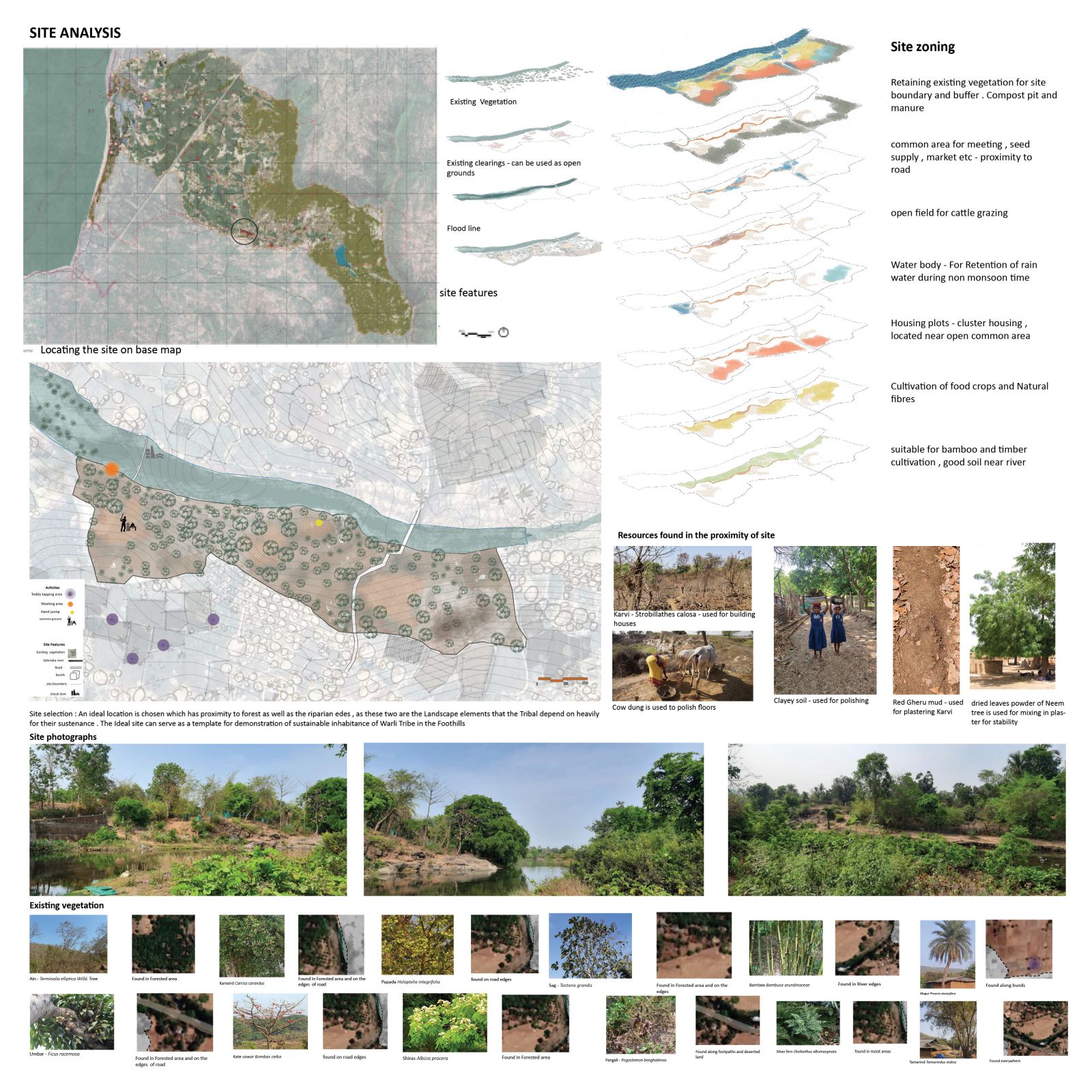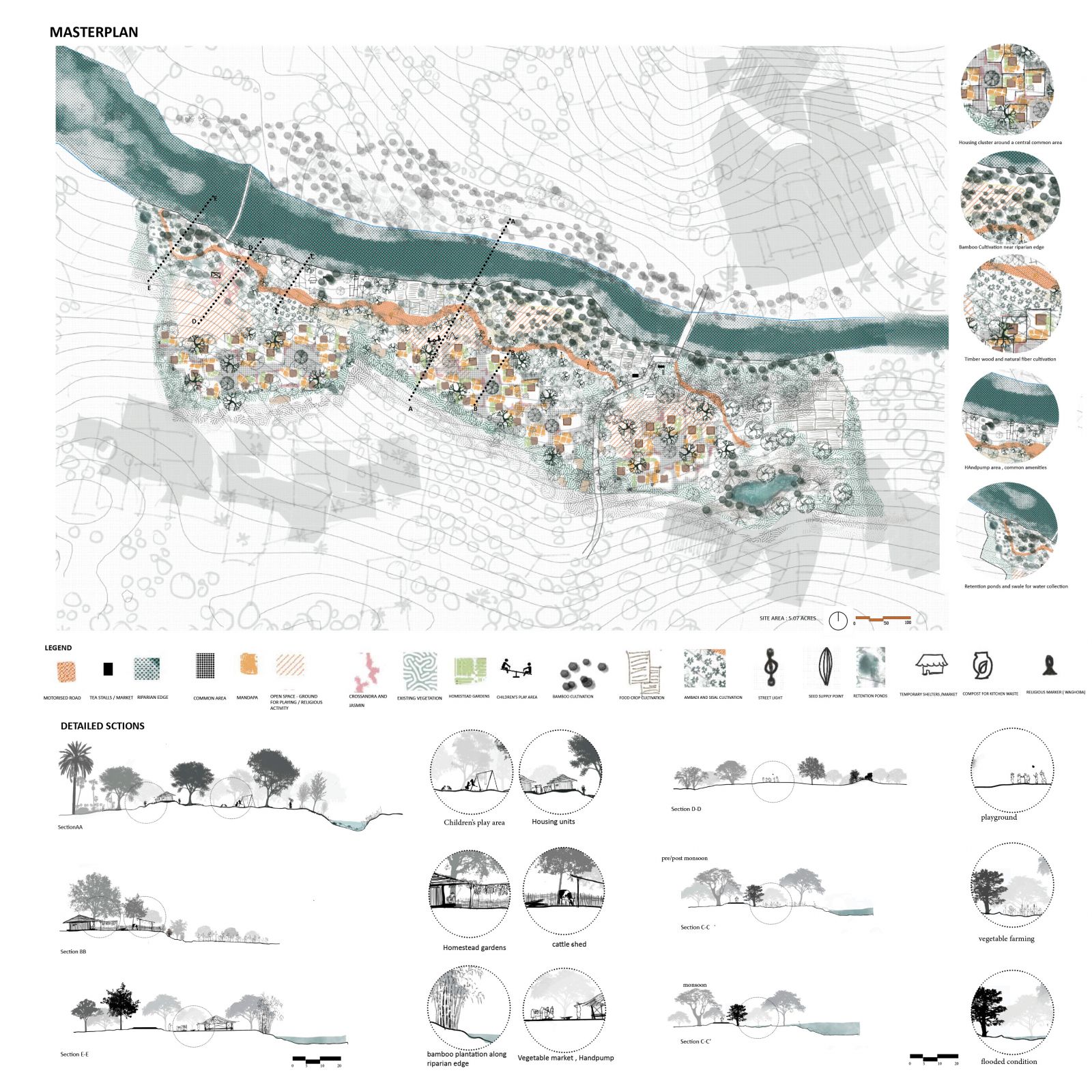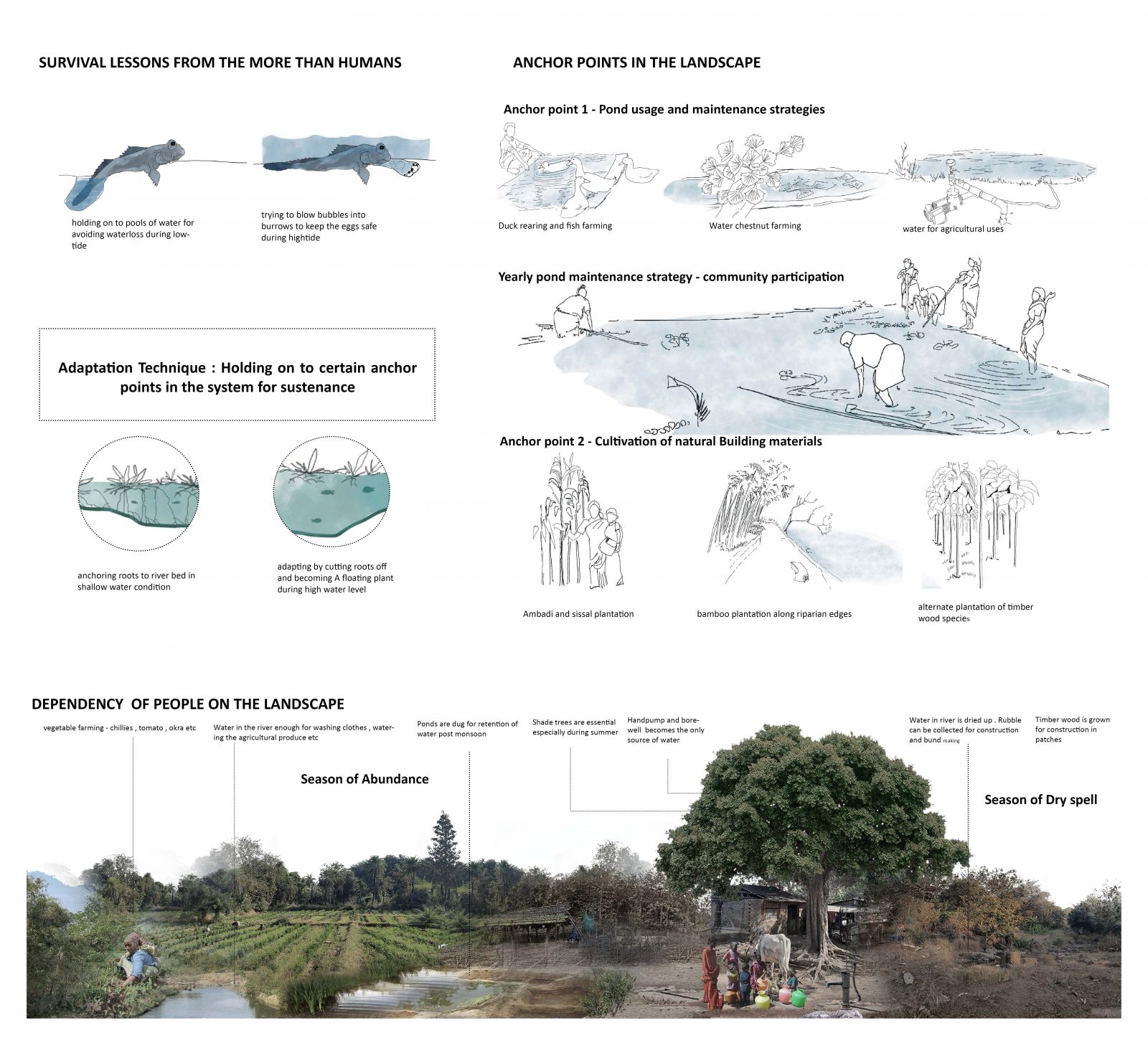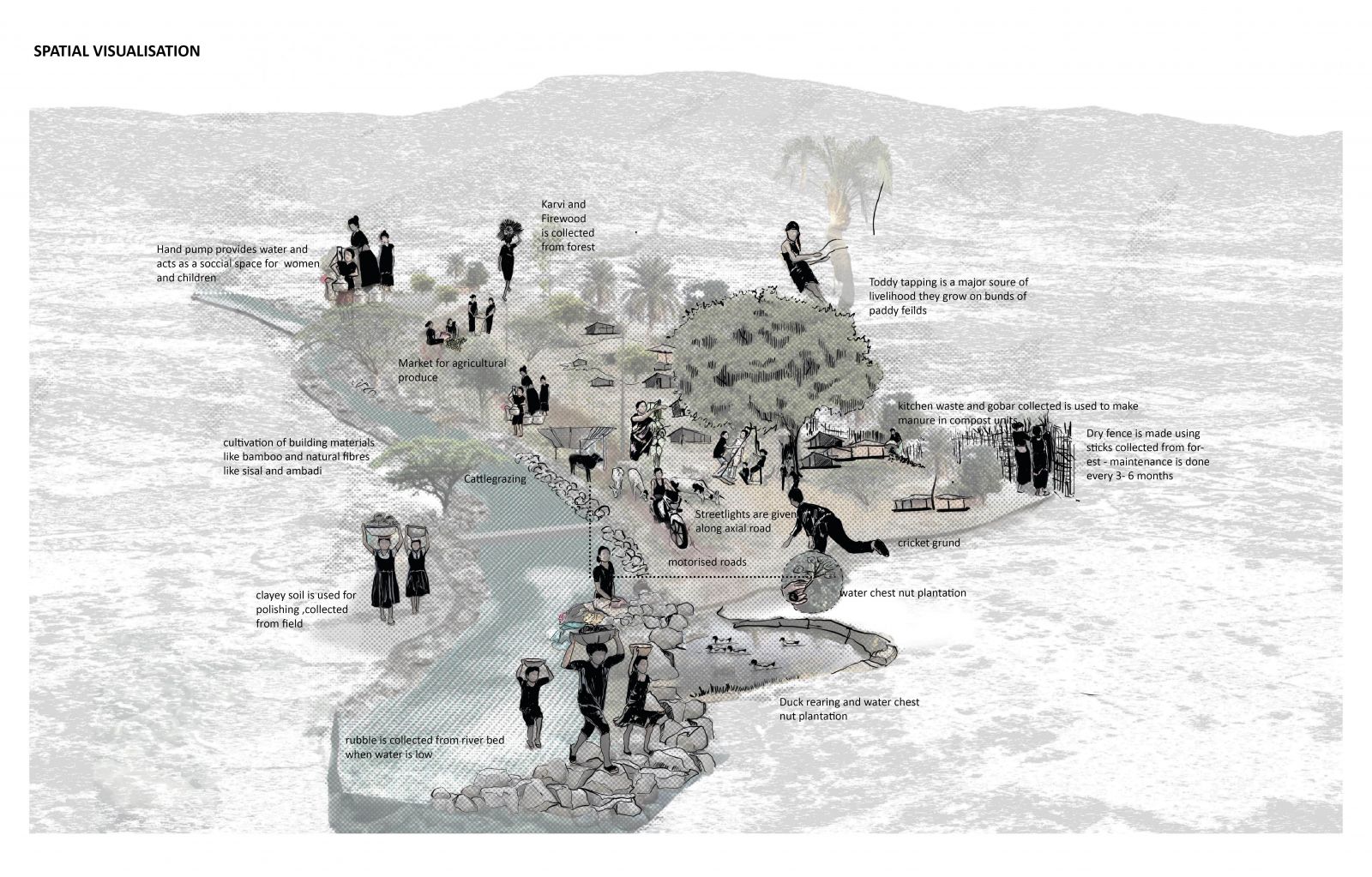- Student LAKSHMI S
- Code PLA21193
- Faculty Architecture
- Unit L4 Studio Unit
- Tutor/s Divya Shah
- TA Sankalpa Patel
A template for Warli Inhabitance and subsistence.The ever-changing characteristics of the river and the ocean into which it flows affects the nature of the landscape of Dahanu , which is a narrow transect between the northern Western Ghats and the Arabian Sea . Due to the effect of the tides and the monsoon, several land parcels drown in water . Despite these consecutive submergences, the same piece of land resurfaced or was uncovered at the retreating phase. This characteristic of the landscape to rejuvenate itself by returning to its origins while maintaining some nuances in character may be traced back to its inhabitants. The inhabitation patterns of indigenous Warli tribes who originally resides in mud plastered Karvi dwellings are the most remarkable illustration of this pattern. The disposition, eviction and marginalization of these people have given rise to homelessness literally and as an overarching feeling . Despite the government's efforts to construct pukka dwellings for the Warlis, their needs and livelihood and way of life could not be contained in these rigidly set up new setting . The modest, non-definitive inserts proposed in the studio strive to re-establish their roots in the landscape by reviving traditional home construction practices and by re-imagining a setting for these homes to be built in . This is intended in initiating grass root measures to prevent migration due to homelessness. Each of the Karvi houses surveyed is a testimonial to the fact that homes are as unique as the individuals who live in them. Hence it becomes evident that their requirements and demands cannot be met by mass-produced dwelling units which rigidly contrast their lifestyle. The design inserts are intended to identify and suggest some anchor points that will help them affix their roots to the traditional livelihood in the landscape without being definitive and binding. The project's goal is to provide a setting for house construction for Warli tribes. The house-building and site planning approach can serve as a blueprint for comparable future development.
